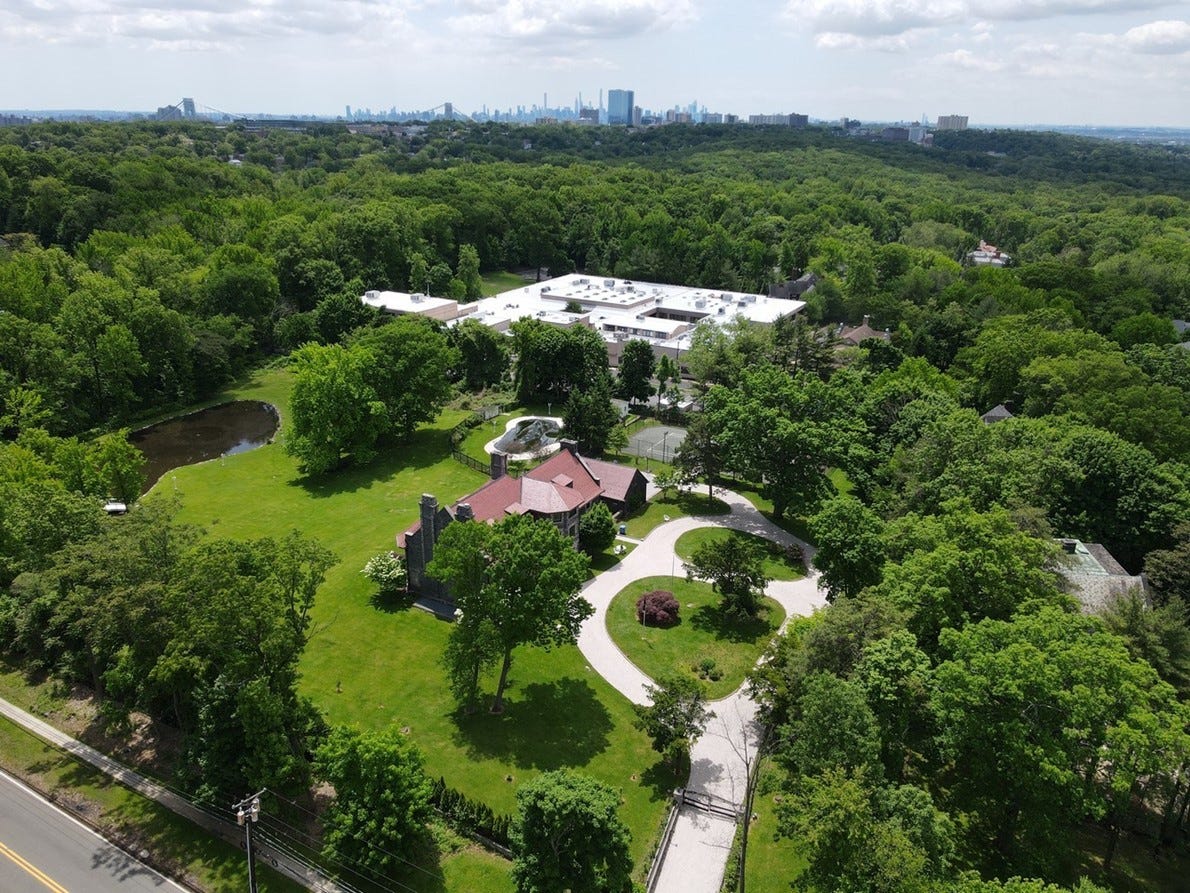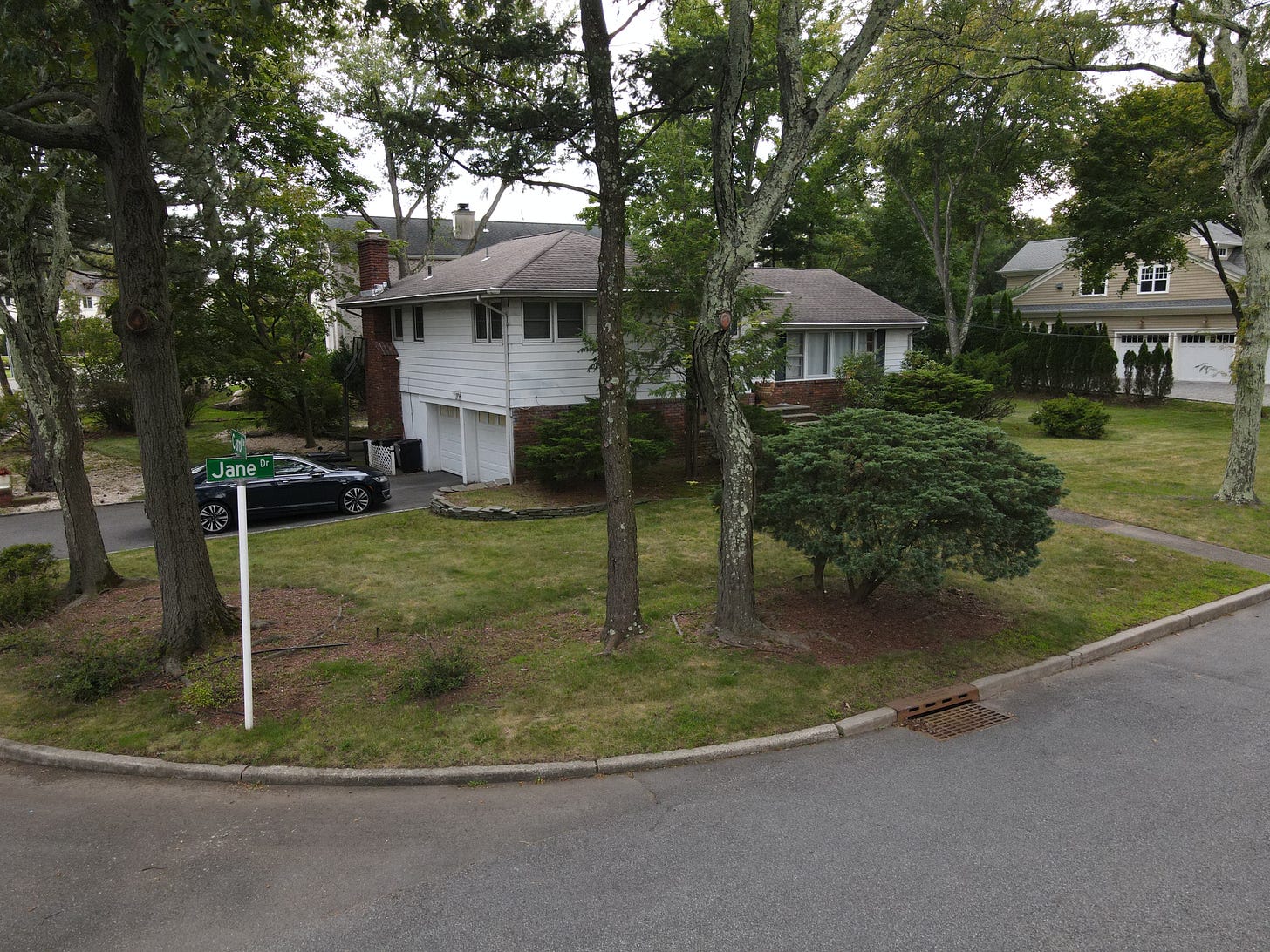Global power runs through New Jersey
The suburbs of New York City play an underrated role in international politics, as the cases of Bob Menéndez and Nikki Haley show.

I left the Middle East for New Jersey this month, but the Middle East followed me here. Last week, federal authorities accused our Senator Bob Menéndez of taking bribes from a halal meat company in exchange for favors to Egyptian military and intelligence officers. (It’s a story straight out of The Sopranos!) A few days before, Republican candidate Nikki Haley had made her pitch to the pro-Israel lobby group NORPAC at a New Jersey country club.
New Jersey is mostly known for weird ambient smells, Mafia families, and party beaches. The state’s role in international power dynamics is often overlooked. The suburbs across from New York City are both rich and cosmopolitan, so there’s a lot of powerful international interests concentrated there, a combination of well-connected diasporas and foreigners with money to blow.
I always like to tell the story of late Libyan ruler Muammar Gaddafi and the local rabbi. The Libyan mission to the United Nations owns a house in New Jersey next door to Rabbi Shmuley Boteach, who waged an incessant media campaign to stop Gaddafi from staying there. Gaddafi ended up renting a property owned by Donald Trump in the nearby suburbs of Westchester County, New York. Trump took the money and kicked Gaddafi out.
Gaddafi was so annoyed by his treatment that he caused an international nuclear scare. Secretary of State Hillary Clinton — also a Westchester County resident — had to talk him down.
Shmuley himself is more than a grumpy local clergyman. He’s also a pro-Israel activist who has been somewhat successful at getting himself a platform in Israeli and U.S. politics. The rabbi has frequently written for the Jerusalem Post, the main English-language daily in Israel, which he used to complain about the Libyan consulate’s treatment of his trees. Shmuley has even brought Americans to promote the Israeli settlement in the Palestinian city of Hebron.
For that matter, many Israeli settlements in the Palestinian territories draw funding and manpower from the New York City suburbs. Joseph Frager, a New York activist who personally built the fence around one Israeli settlement, played both sides of Middle Eastern politics by taking a Qatari consulting job. Haley’s campaign event drew the same crowd, right-wing nationalist Jewish diaspora in the suburbs.
Menéndez got his own start through a different diaspora’s politics. His hometown and first government jobs were in Union City, a heavily Cuban-American area of New Jersey known as a base for anticommunist militancy. (The local park includes a monument to the CIA operatives who died in the Bay of Bigs invasion.) Menéndez made a name for himself early on defending Cuban-Americans accused of right-wing terrorism.
Throughout his rise to the highest foreign policy position in the Senate, he always maintained ties to various diaspora lobbies. Menéndez is a member of the Friends of the Irish National Caucus and the Armenian Caucus. Rabbi Shmuley, himself a Republican, praised Menéndez for being a non-Jewish friend of Israel. A Greek diaspora newspaper simply described Menéndez as “our guy.”

The last time Menéndez was accused of corruption, it was for an alleged scheme to help a Dominican-American businessman get a deal with the Dominican government. The latest scandal similarly began through a diaspora connection. The federal indictment suggests that Menéndez got in touch with the Egyptians through Fred Daibes, a Lebanese-American real estate developer who knew Egyptian-American meat merchant Wael Hana. Menéndez’s own wife, Nadine Arslanian, is also Lebanese-American.
The favors to Egypt were only some of the services Senator Menéndez allegedly provided in exchange for bribes; much of the indictment focused on Menéndez’s attempts to shield Daibes and fellow business associate José Uribe from fraud investigations. Menéndez has denied the charges, claiming that the FBI “misrepresented the normal work of a congressional office.”
Yet the stakes were global. Menéndez, former chair of the Senate Foreign Relations Committee, has control over U.S. arms exports and the ability to badger the U.S. State Department for information. Some of his alleged favors to Egypt include green-lighting weapons deals and handing over sensitive data about U.S. Embassy staff in Cairo. Menéndez also allegedly ghost-wrote a letter for an Egyptian known as “the General,” asking the United States to lift a hold on military aid.
The indictment includes a photo of Menéndez and Arslanian in Egypt, grinning alongside a “senior Egyptian intelligence officer,” whose face was censored by the FBI. (Researcher Amy Hawthorne pieced together that it was likely Egyptian intelligence chief Abbas Kamel.) On his return from Egypt, Menéndez allegedly googled “how much is one kilo of gold worth.”
In another tragicomic moment from the indictment, Menéndez asked Arslanian to tell Hana that he had approved the sale of ten thousand tank ammunition rounds and 46,000 target practice rounds to Egypt, for use against the Sinai insurgency. Arslanian forwarded the senator’s text message to Hana, who forwarded it to an Egyptian army officer, who responded only with a 👍 emoji.
These favors allegedly helped the Menéndez family buy the trappings of suburban life. The most salacious allegation is that Menéndez bought a Mercedes-Benz convertible with bribes from Uribe — unrelated to the Egyptian scheme — and that Arslanian paid for jewelry with gold bars. Some Egyptian money allegedly went towards paying off the mortgage on Arslanian’s house.
The Egyptians allegedly paid Menéndez through a no-show job at Hana’s meat company. (A favorite tactic of New Jersey’s Mafia, no-show jobs are a way to disguise a bribe as an employment contract.) In 2019, the Egyptian investigative news outlet Mada Masr noticed strange government favors to Hana’s meat company. That, along with the gold bars and Arslanian’s sudden ability to pay off her mortgage, seem to be the issues that attracted outside attention to the case.
I passed by the Menéndez-Arslanian home on Friday, the day of the indictment. The house is small, but looks are deceiving. Englewood Cliffs is an expensive town, so the property is worth about $1.1 million. Reporters were milling around outside, trying to find the Mercedes-Benz convertible. One of them seemed a little confused. He couldn’t believe that this modest house was the center of well-funded international intrigue.
That’s New Jersey for you: global power hidden in plain sight.





